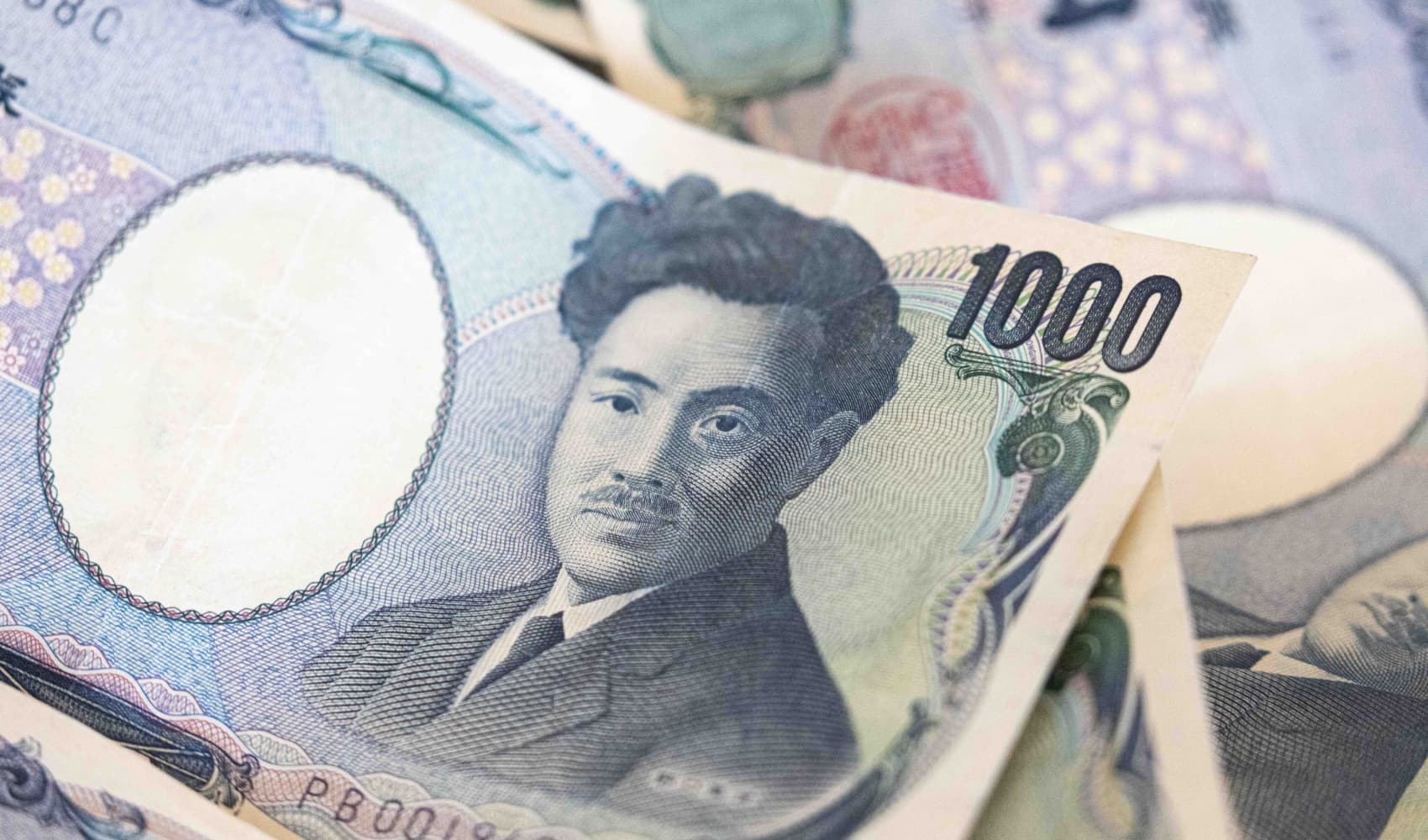
- In 2012, someone stole 50,000 bitcoin from the Silk Road, an illegal dark web marketplace. Over time, the value of the stolen bitcoin skyrocketed to more than $3 billion dollars and for years it remained one of the biggest mysteries in the world of cryptocurrency.
- Almost a decade after the 2012 hack, the thief made a critical mistake that allowed the IRS-CI to crack the case.
- CNBC obtained never-before-seen footage that shows how investigators linked the thief to the crypto heist.
Athens, Georgia, is home to the University of Georgia, and the police there are used to college town-type crimes: break-ins, bar fights and assorted rowdiness. That kind of thing.
But the 911 call that came in on the night of March 13, 2019, was unlike anything the Athens-Clarke County Police Department had ever encountered.
On the phone was 28-year-old Jimmy Zhong, a local party boy and Georgia alum who frequented Athens' drinking establishments. He wasn't like the other town rowdies – Zhong was also a computer expert who had an unusually robust digital home surveillance system.
Get a weekly recap of the latest San Francisco Bay Area housing news. Sign up for NBC Bay Area’s Housing Deconstructed newsletter.
Now, he was calling to report a crime: hundreds of thousands of dollars in crypto currency that he said had been stolen from his home. Thinking of all that lost money, Zhong was distressed.

"I'm having a panic attack," Zhong told the dispatcher, according to a recording obtained by CNBC.
Money Report
Zhong turned down the dispatcher's offer of an ambulance, and began trying to explain the situation. "I'm an investor in bitcoin, which is like an online thing," he said.
What happened next would bring an end to a nearly decade long manhunt and solve one of the biggest crimes of the crypto era. And it also would lead to the largest seizure of cryptocurrency from an individual in the history of the Department of Justice.
Zhong's emergency call that winter evening sent investigators down a long digital trail that led back to the earliest days of bitcoin and revealed a dark truth about the universe of hackers and coders responsible for the creation of cryptocurrencies. It's a world where heroes and villains traded places and could even be the same people.
None of it would go at all the way Zhong wanted.
The 911 call didn't produce a suspect in the theft from Zhong's house. Athens police were dealing with one of their first crypto cases and unfamiliar with the shadowy underworld, and they failed to make progress in the case.
So Zhong turned to local private investigator Robin Martinelli, who owns and operates Martinelli Investigations in nearby Loganville, Georgia.

A former sheriff's deputy turned PI, Martinelli was far from an expert in crypto. She specialized in process serving, cheating spouses and custody investigations, the type of probes that once got her firm featured on an episode of "The Montel Williams Show."
Martinelli had recently undergone surgery to amputate one leg, leaving her to conduct her surveillance operations with the help of a prosthetic.
Still, she was motivated to solve Zhong's case.
"When you wake up and don't put two feet on the ground, but you still have to run a company, you got to get out there and kick ass," Martinelli told CNBC in an interview for the new documentary, "Crypto 911: Exposing a Bitcoin Billionaire."
She began by examining Zhong's robust surveillance video archive of his home. In looking at footage from the night of the crime, Martinelli spotted a slender male figure.
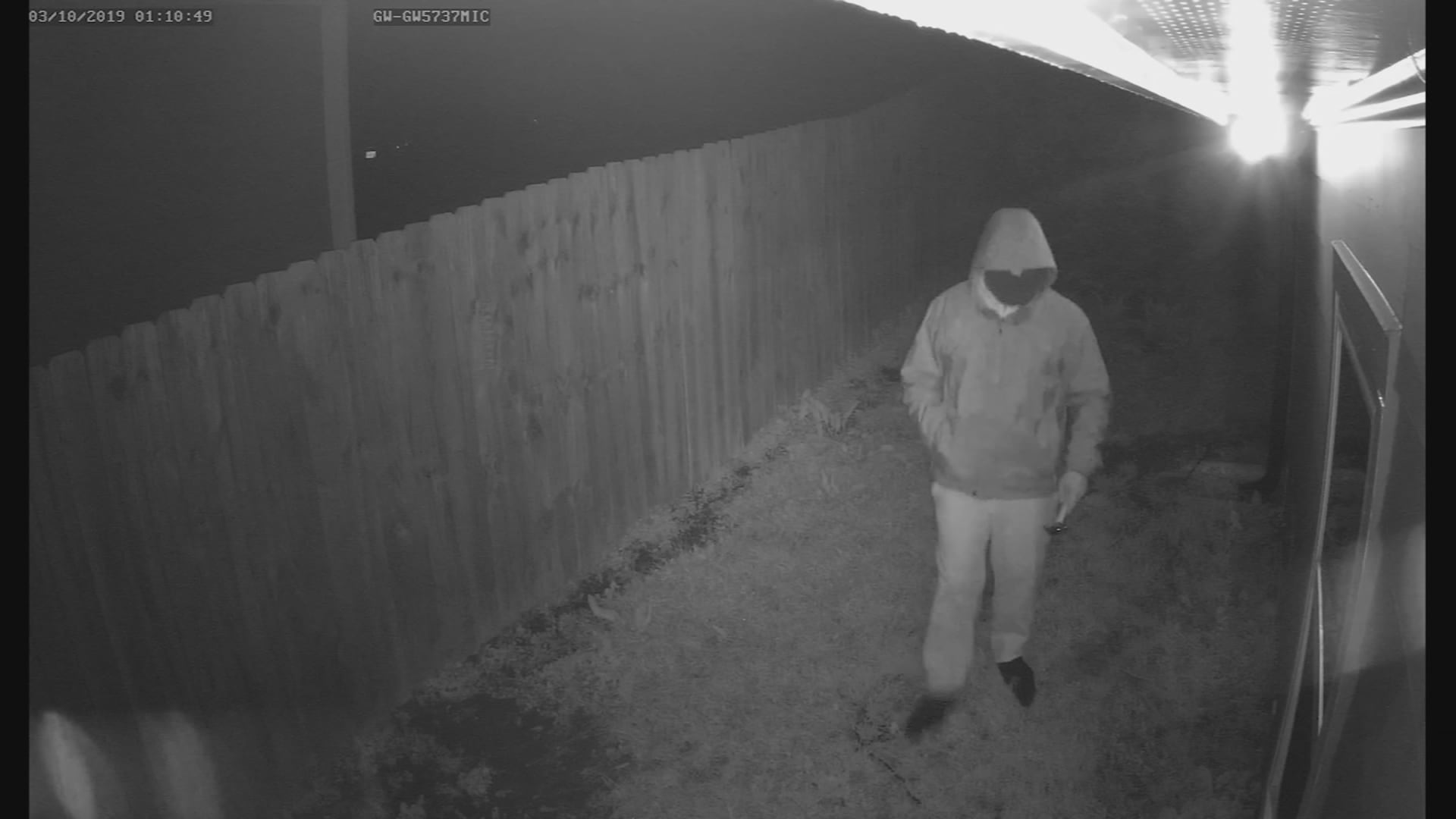
"We could tell that they had like a hood on – a gray hood – but then they had almost like a black ski mask," Martinelli said.
The suspect appeared to know his way around Zhong's house, which led Martinelli to believe that he was a friend or at least someone who had heard Zhong boast about his bitcoin stash. From the video, Martinelli was able to determine the suspect's height and even the size of his hands.
She said she began her investigation by putting Zhong's friends under surveillance, following them to their homes and downtown bars on Broad Street and College Avenue. She put trackers on cars and scoured social media and conducted background checks.
As she watched Zhong's bar friends come and go, Martinelli formed a low opinion of the group. She described them as "very, very casual, plastic, not really caring, maybe using Jimmy a little bit."
Martinelli said Zhong appeared resistant to her theories, especially when they began to focus on his circle of friends. Martinelli eventually settled on one suspect in particular who she believed had stolen 150 bitcoins from Jimmy. At the time, that amount of the digital currency was worth nearly $600,000.
Zhong didn't want to hear it, she said.
"He would get upset when I would kind of mention somebody would had to have known where this cash was," Martinelli said. And she understood why Zhong was so hurt by the idea that someone close to him could have betrayed him.
"Jimmy wanted to be loved," she said. "Jimmy wanted friends."
Even as Martinelli soured on the friend group, she was warming up to her client, who she perceived as an odd man in search of friends.
"Jimmy was a good guy," she said.
A lot of people around Athens felt similarly about him.
In the years before the theft, Zhong was known for throwing a lot of money around town. He was the kind of guy who would buy a round of expensive shots for the whole bar, hundreds of dollars vanishing in seconds down eager throats.

Although he lived in a modest off-campus bungalow, near student housing and the downtown college bar scene, he stayed at fancy hotels, including the Ritz Carlton, the Plaza and the Waldorf Astoria, according to court documents CNBC reviewed. He shopped at high-end stores such as Louis Vuitton, Gucci and Jimmy Choo. He drove fancy cars, including a Tesla. He bought a second home, a lake house with a dock in Gainesville, Georgia, a short drive from Athens. He stocked it with jet skis, boats, a stripper pole, and lots and lots of liquor.
His parties were epic.
Zhong was living his best life with no visible source of income. As far as anyone knew, he didn't really have a job. He told his friends that he'd gotten into bitcoin early, mining thousands of coins in the earliest days of the technology. Zhong told people he dabbled in crypto as far back as 2009, the year bitcoin was invented by the mysterious Satoshi Nakamoto and a small crew of developers tied online to the anonymous crypto creator.
Whatever Zhong was doing, he was making mountains of cash. And he was willing to splurge.
In 2018, when his beloved Georgia Bulldogs football team made the Rose Bowl, Zhong rounded up a small group of friends for a pilgrimage to Los Angeles.

"It really felt like with Jimmy, there were no limits," Stefana Masic, a Georgia alum and one of the friends on the trip, told CNBC.

Masic said not only did Zhong pay for all the tickets, but he also rented a private jet for the cross-country flight. And he gave each friend up to $10,000 for a Beverly Hills shopping spree on Rodeo Drive. They spent it on outfits, accessories and baubles to wear in the city.
"I had never flown private before, and I never stayed in such a nice Airbnb. It was cool because, you know, I got to experience a lot of things that I normally wouldn't."
As he was cheering on his team in LA, Zhong couldn't have known that a small group of agents from the IRS Criminal Investigation unit, led by officials in the same city, were painstakingly trying to solve a crime that dated back years.
What had captured the investigators' attention was a 2012 hack in which someone had stolen 50,000 bitcoins from a site on the dark web called Silk Road, according to court documents CNBC reviewed. That site was one of the earliest crypto marketplaces, where anonymous buyers and sellers exchanged all manner of illicit material. It was full of drugs, guns, pornography and other stuff people wanted to keep secret.
Over the years, the value of the bitcoin stolen by the Silk Road hacker had soared to more than $3 billion, according to court documents. Investigators could track the location of the currency on the blockchain, which is a public ledger of all transactions. But they couldn't see the identity of the new owner of the funds. So they watched and waited for years as the hacker transferred funds from account to account, peeled some away, and pushed some of it through crypto "mixers" designed to obscure the source of the money.
Finally, Chainalysis, a blockchain analytics company that was tracing the digital wallets containing the stolen Silk Road assets, saw the hacker made a tiny mistake. He transferred around $800 worth to a crypto exchange that followed established banking rules, including so-called know your customer processes, requiring real names and addresses of account holders.
The account was registered in Zhong's name. The transaction took place in September 2019, six months after Zhong's 911 call to the local police.
That alone wasn't enough to prove Zhong was the hacker. They had to be sure.
So the IRS called the Athens-Clarke County Police Department and asked for some help, according to sources at both agencies. At the time, the police investigation into Zhong's own crime report had been languishing.
"I got a call from an IRS agent," Lt. Jody Thompson, who leads the local property and financial crimes unit, told CNBC. "And he said, 'can I come by and speak to you about Jimmy?' And I was like, sure, I remember this case."
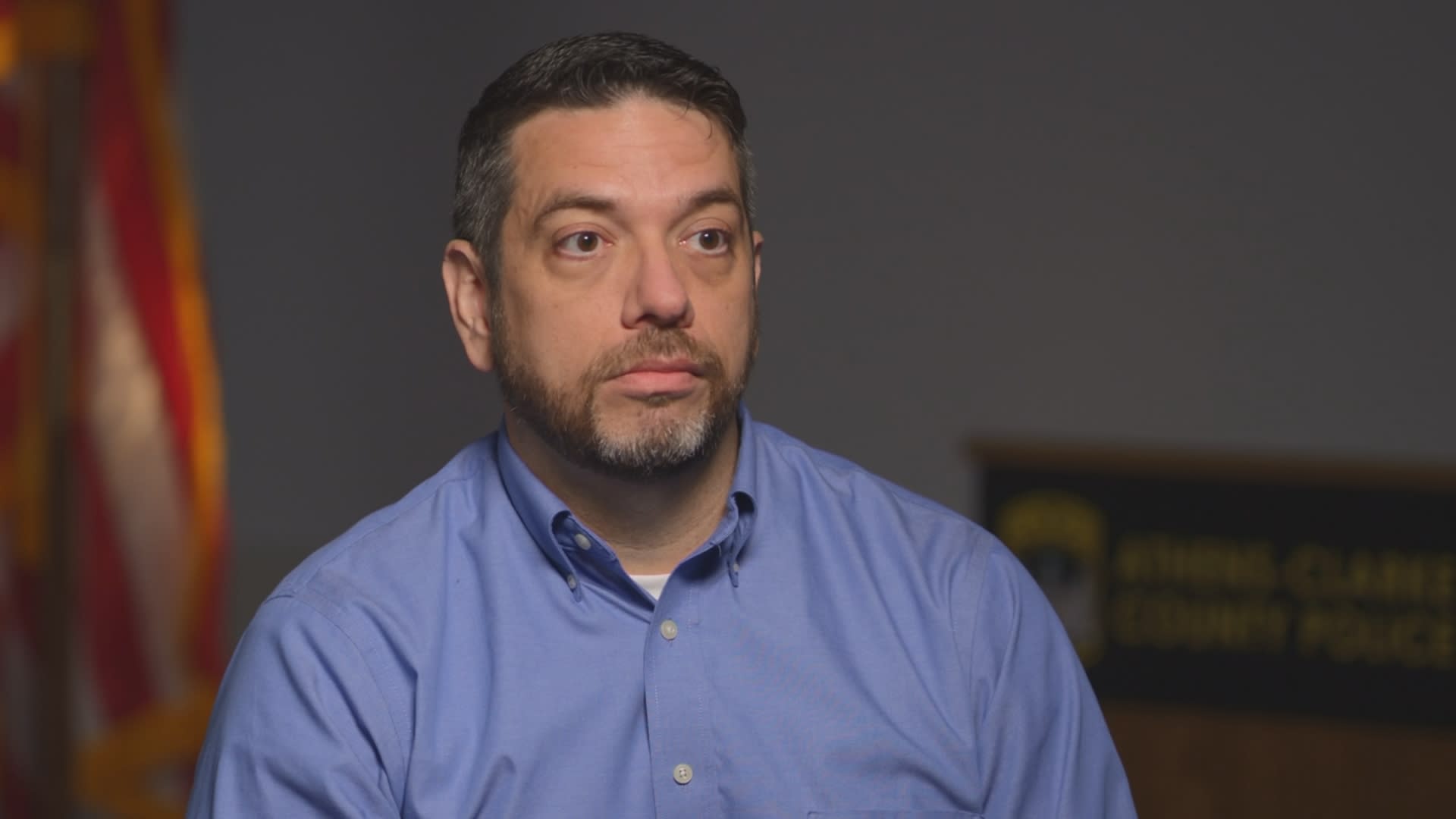
After that, Thompson joined forces with IRS-CI special agent Trevor McAleenan and Shaun MaGruder, CEO of a cyber intelligence company called BlockTrace. MaGruder's company works with the IRS as an embedded contractor and was hired for its experience untangling complicated blockchain transactions.
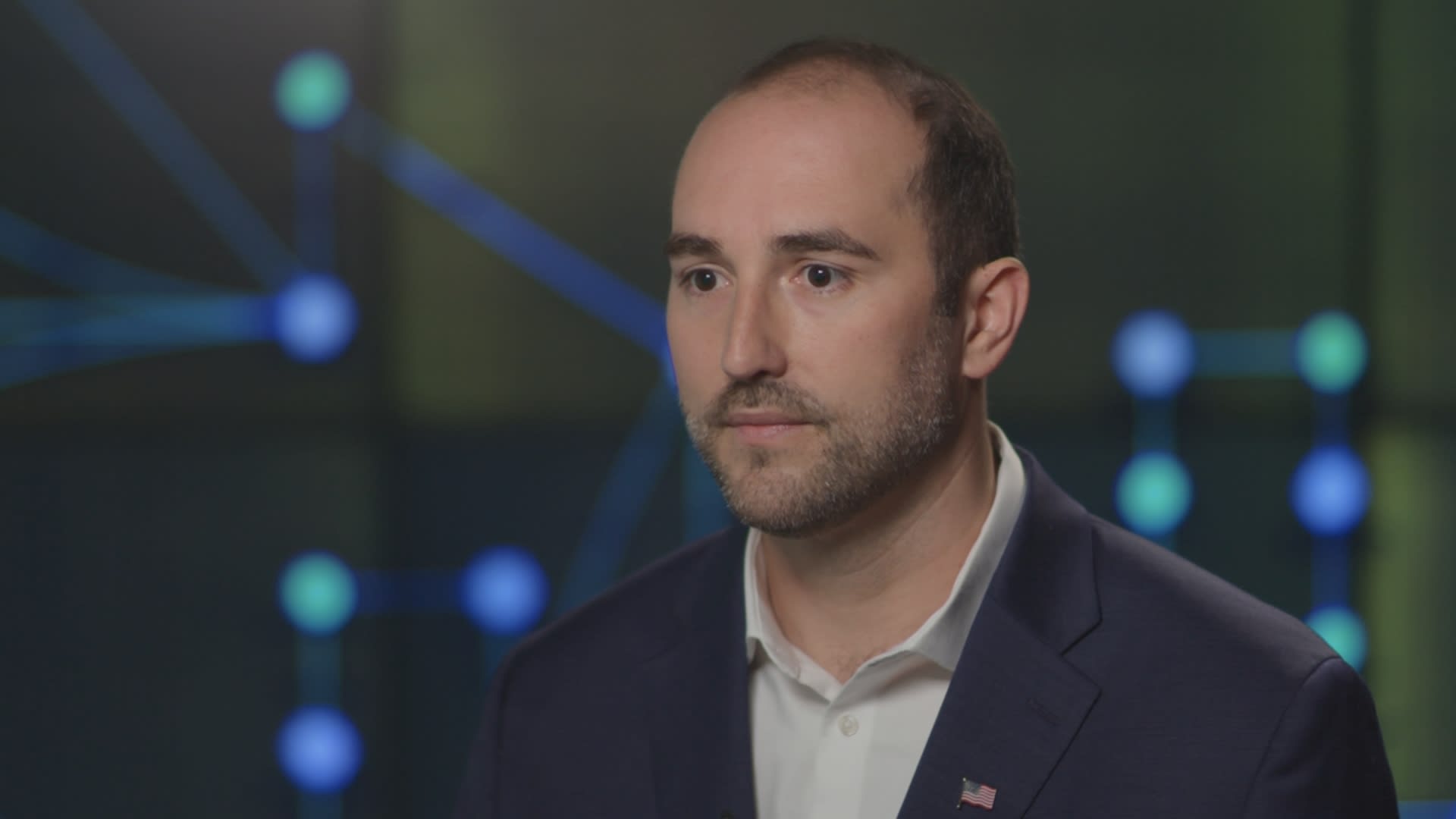
Together, the three investigators said they devised a plan. They would approach Zhong using a ruse, telling him they were investigating the crime that he'd called about, the one in which a thief had stolen hundreds of thousands of dollars of his bitcoin.
In reality, they were investigating Zhong for a crime they believed he had committed. A crime whose proceeds were now worth billions of dollars.
When the three men knocked on the door of his lake home in Gainesville, Zhong opened it enthusiastically, according to body camera footage CNBC exclusively obtained. He believed the police officer and the two specialists were there to help solve his crypto cold case.
"If you guys solve this for me, I will invite you out for a party," Zhong told the trio on the body camera footage.
The video shows the officers pouring on the praise. They called his front door "beautiful." They called his speakers "crazy," and they complimented his dog, Chad. They asked for a tour of the house. Body camera footage shows the men tapping on stone floors, looking in closets and checking out wood paneling. Zhong didn't know it, but they were scouring for secret compartments.
Zhong brought investigators to his basement, equipped with a full bar and a stripper pole.
"Is this your workout?" McAleenan asked Zhong.
"Nope, that's for girls," Zhong replied.
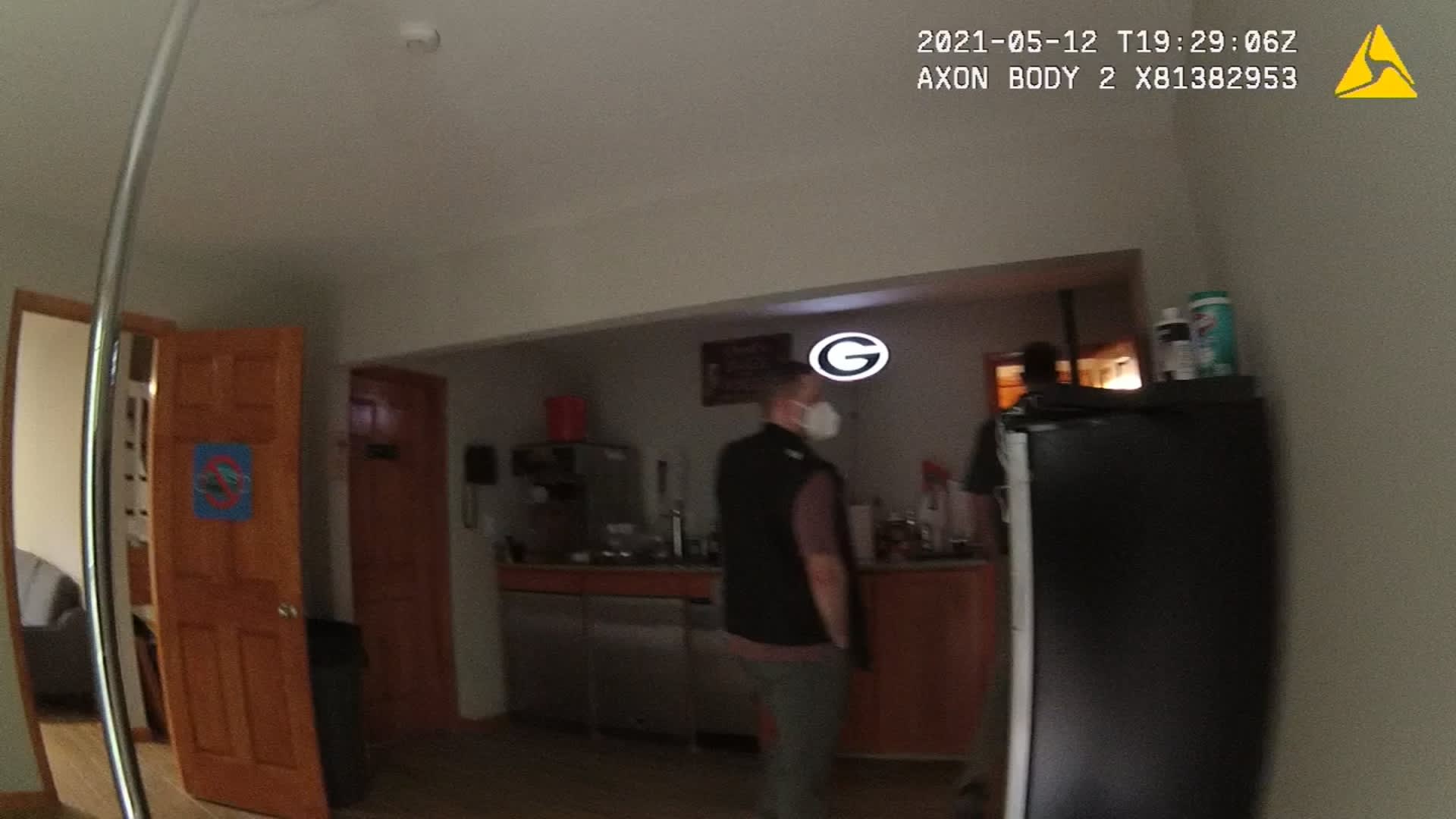
The body camera footage also shows they got a good look at Zhong's security system, asking him to explain each of its features and capabilities. Zhong is also captured showing them a metal case he said he once used to store $1 million in cash so he could impress a woman.
"Did it work?" asked Lt. Thompson.
"Nope," Zhong said.
"It never does," Thompson replied.
The law enforcement officers learned that Zhong had a flamethrower on the premises. And they saw his AR-15 rifle hanging on the wall.
MaGruder said Zhong's level of sophistication was apparent.
"He was navigating that keyboard like I've never seen someone navigate a keyboard," MaGruder said. "He didn't have to use a mouse because he knew all the hotkeys."
Playing on the ruse, the officers asked Zhong to open his laptop and explain how he came to have the bitcoin in the first place. Zhong sat on the couch next to the investigators and entered his password, asking them to turn away as he typed.
When he opened the laptop, law enforcement could see his bitcoin wallet.
"Lo and behold, he had $60 or $70 million worth of bitcoins right there next to us," MaGruder told CNBC in an interview.
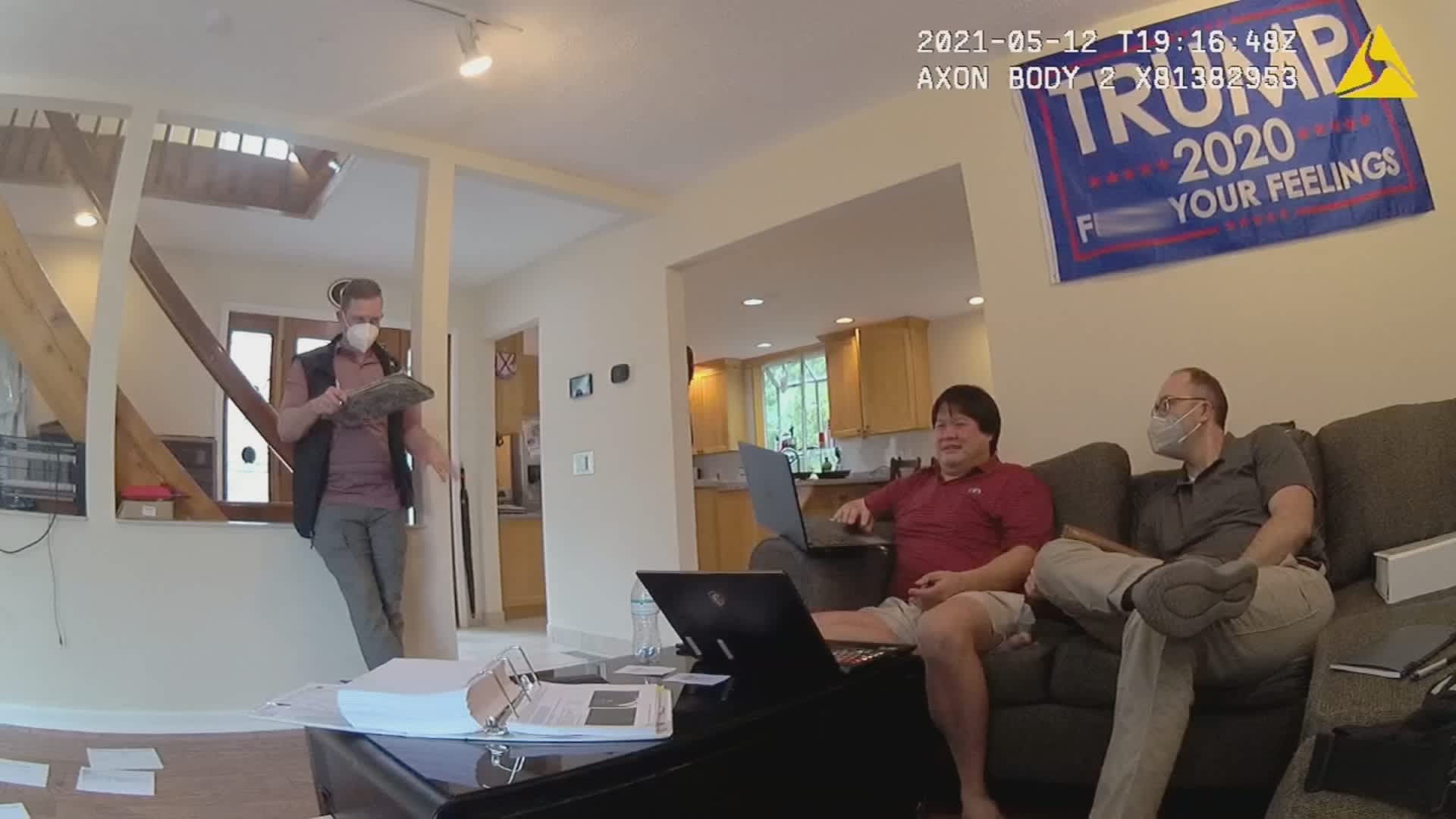
The evidence was enough to convince the investigators they were on the right track. As he exited Zhong's lake house, MaGruder told CNBC he thought to himself, "This is incredible. I think we found our guy."
The first visit allowed the investigators to obtain a federal search warrant for Zhong's home, McAleenan said. McAleenan, MaGruder, and Thompson returned with an enormous team of officers on Nov. 9, 2021.
Before the officers raided the house, McAleenan had to explain to Zhong that he wasn't really trying to help him. He was trying to convict him.
"I said, Jimmy, you know me as 'Trevor.' I'm actually Trevor McAleenan. I'm a special agent with IRS Criminal Investigation, and we're here to execute a federal-approved warrant on your house," McAleenan said.
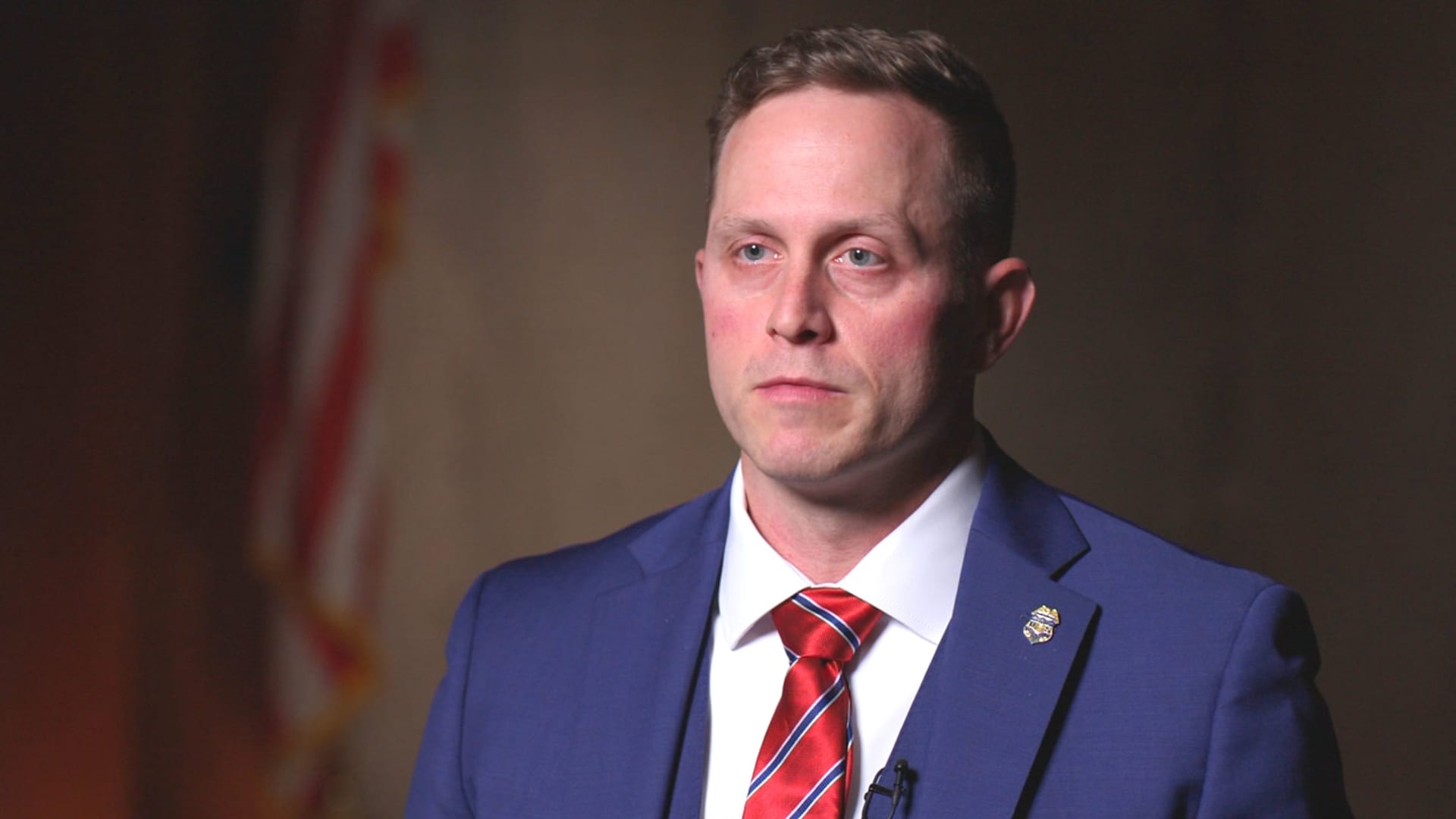
"And he kind of had this look like, 'Am I being punked?'" McAleenan added.
At that moment, another officer slid a device known as a "jiggler" into Zhong's laptop, causing the cursor to continually move and giving law enforcement access to the password-protected contents of the computer, McAleenan said.
Officers flooded into the home, cracking open every crevice in search of evidence. McAleenan said in an upstairs closet, they found a popcorn tin with a computer hidden inside that held millions of dollars worth of bitcoin.

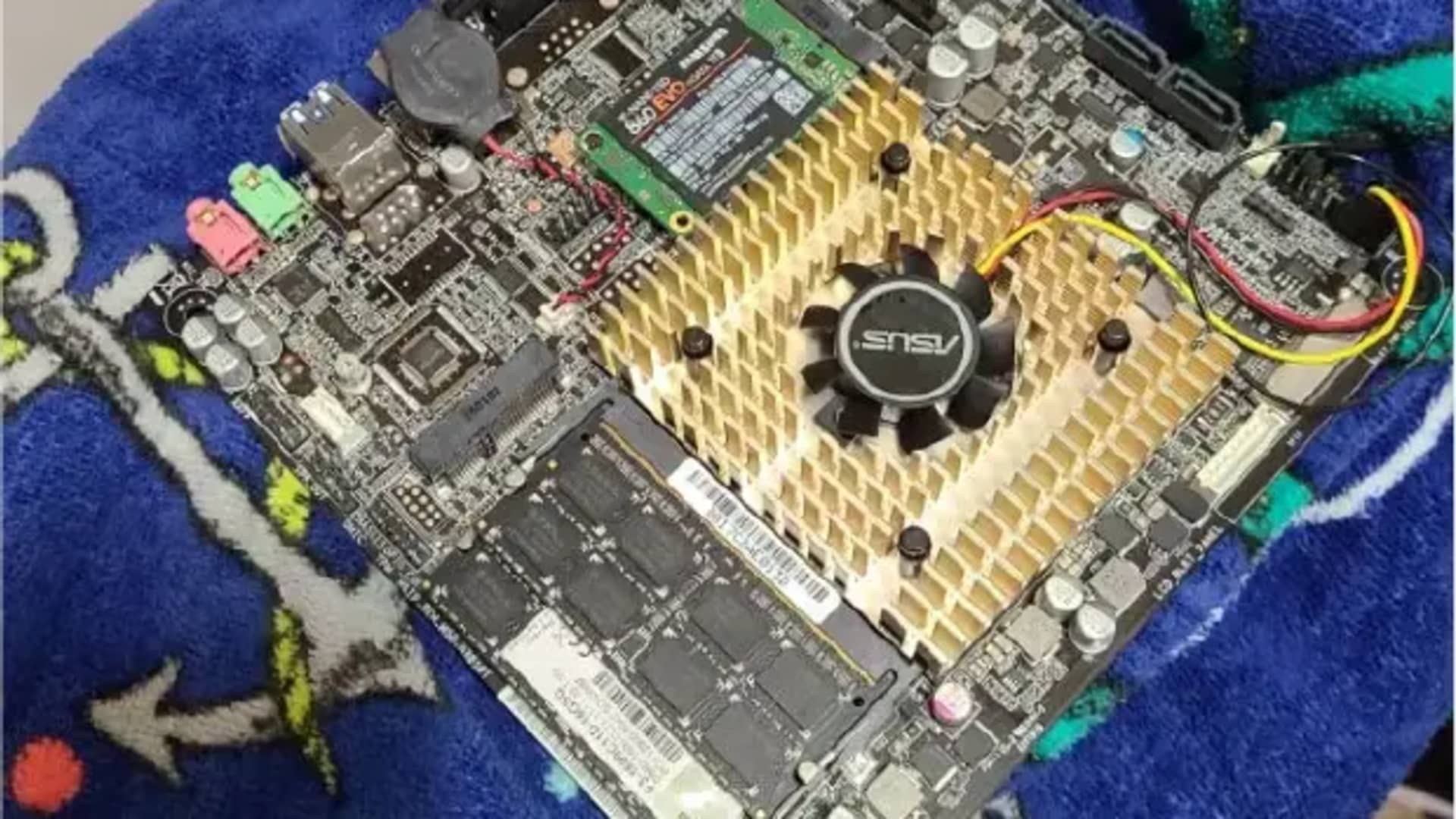
Using sniffer dogs trained to detect electronics, McAleenan said they found a safe buried in concrete under some basement floor tile. Court documents said the safe contained precious metals, stacks of cash and physical bitcoins minted in the early years of crypto. They also found a wallet with bitcoin from the original hack of Silk Road in 2012.

Zhong was busted.
"Really late at night we were able to say we were successful," McAleenan said. "We found the evidence that we were looking for. And the house lit up. I mean, every agent on the site cheered."
As they sorted through the evidence, agents discovered something else about the unusual Mr. Zhong. He was, in crypto slang, an "original gangster," or OG.
Investigators discovered that as far back as 2009, the year bitcoin was invented, Zhong was among a small group of early coders who worked to develop and perfect the technology. He was a smaller contributor than some of the other OG players who have since become famous in the bitcoin community, McAleenan said. But investigators concluded that he made contributions to the original bitcoin code and offered ideas to the early developers on key topics like how to reduce blockchain size.
In other words, a hacker who had been involved in the development of bitcoin itself went on to become one of the biggest bitcoin thieves of all time.
"He is one of the, as we dubbed it, the original gangsters, OGs, as far as bitcoin core software developers," McAleenan said. "He had been in this space for quite a while."
The irony of Zhong's role in the history of bitcoin is emblematic of the culture that built the cryptocurrency in the first place, said Nathaniel Popper, author of "Digital Gold: Bitcoin and the Inside Story of the Misfits and Millionaires Trying to Reinvent Money."
"Everybody came to this for their own reason," Popper told CNBC. "And it was, as a result of that, a very sort of eclectic and eccentric group of people."
"Bitcoin was always shot through with irony," Popper said. "Yes, there was something ironic about a bitcoin proponent stealing bitcoin from another bitcoin proponent. But I think that was also in some ways a part of what defined bitcoin."
Zhong was charged with wire fraud. After pleading guilty, he was sentenced to one year and a day in federal prison. Zhong, now 33 years old, began his sentence at the federal prison camp in Montgomery, Alabama, on July 14, 2023.
In the end, Zhong didn't get to keep the stolen bitcoin. The U.S. government seized those assets. Officials opened a process that allowed victims of the hack to apply to get their bitcoin back, according to a forfeiture document CNBC reviewed.
Nobody came forward to claim the loot. That's not surprising, given that users of Silk Road in 2012 were largely drug dealers and their customers. The federal government simply sold off the stolen bitcoin and will keep the proceeds. Some of the revenue generated will likely be shared with the Athens-Clarke County Police Department, in recognition of the local officers' help in the case, according to the IRS-CI.
As he left the courthouse after his sentencing on April 14, CNBC attempted to question Zhong about his role in the crime. Zhong covered his head with his coat and left without saying a word.
In his statement to the judge before sentencing, Zhong said having billions in stolen bitcoin made him feel important.
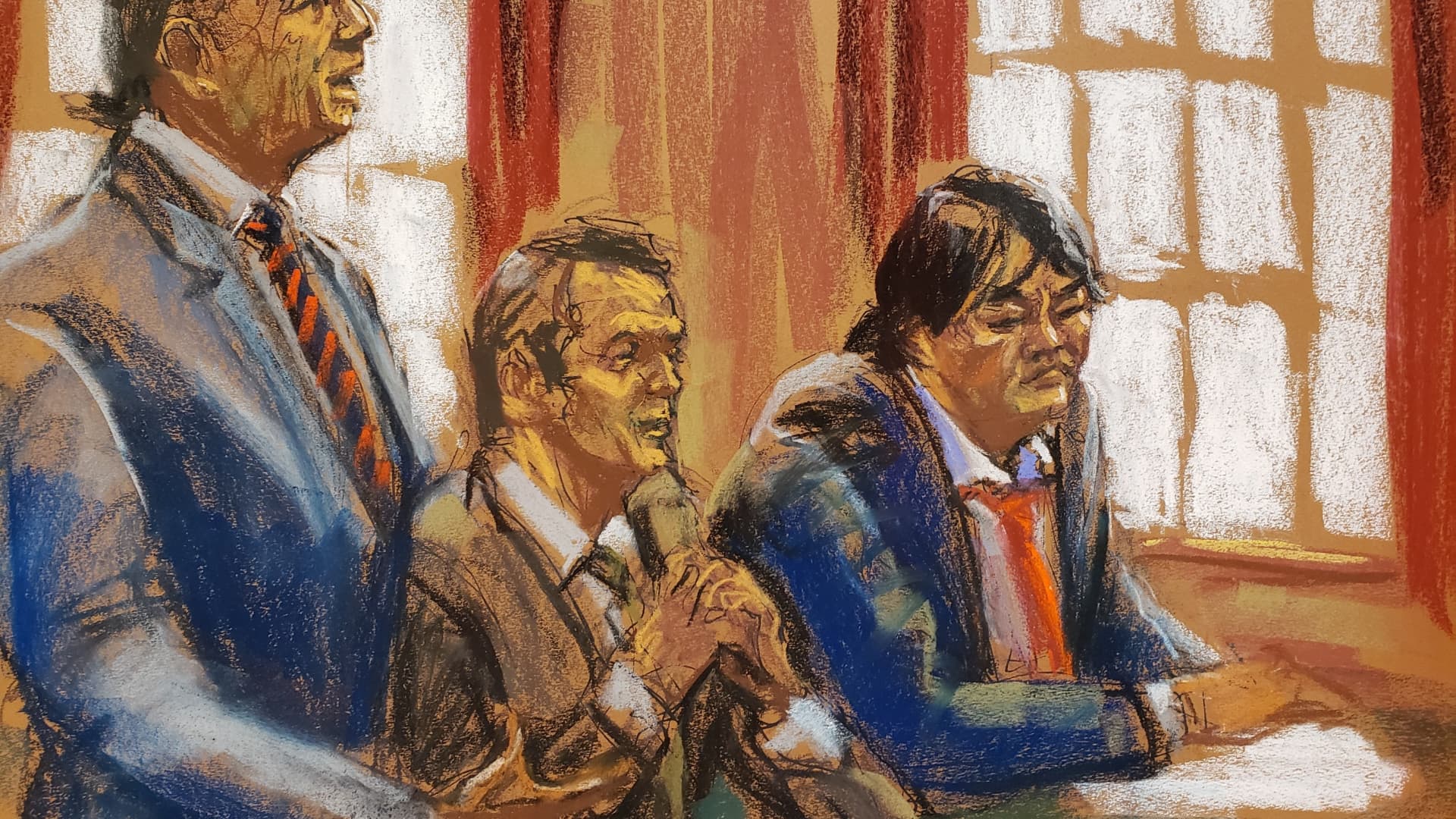
Zhong's attorney, Michael Bachner, says the theft never actually damaged the U.S. government.
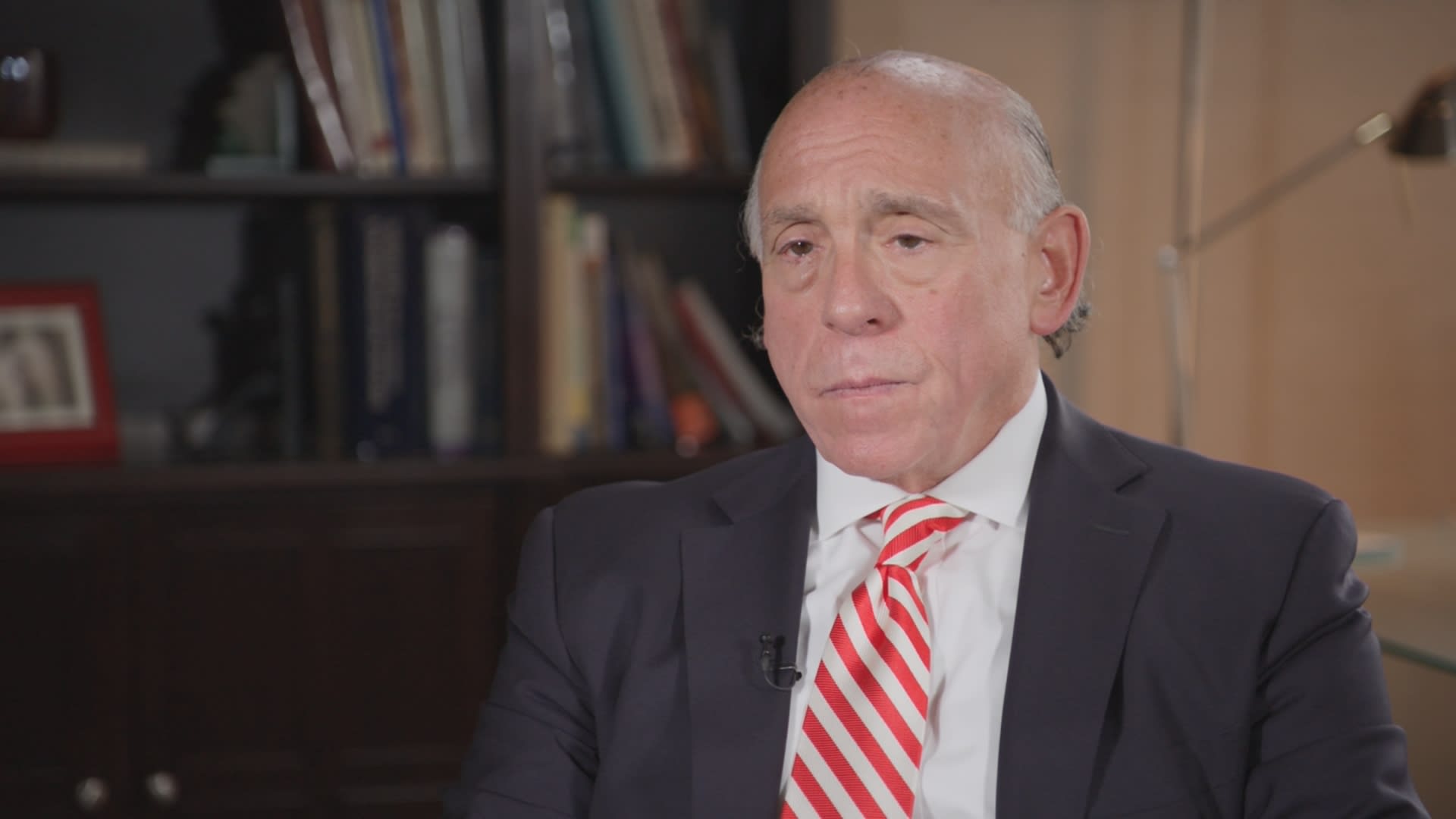
"The government has certainly not been hurt by Jimmy's conduct whatsoever," Bachner told CNBC. "If Jimmy had not stolen the coins and the government had in fact seized them from [Silk Road operator Ross Ulbricht] they would have sold them two years later in 2014 as they did with other coins."
At that point, the government "would have gotten $320 a coin or made somewhere about $14 million," Bachner said. "Now, as a result of Jimmy having them, the government has gotten a $3 billion profit."
Zhong asked for no jail time because he was concerned about the fate of Chad, his 13-year-old dog. Zhong has had a difficult life. On the autism spectrum, Bachner said he was severely bullied at school. And he found solace over the years in an online community where he could deploy his computing skills.

As for the original crime against Jimmy Zhong — the bitcoin theft in Athens that led him to the 911 call in March 2019 — that crime has never been solved. The perpetrator remains at large.
Zhong's dog, Chad, is staying with a friend.



